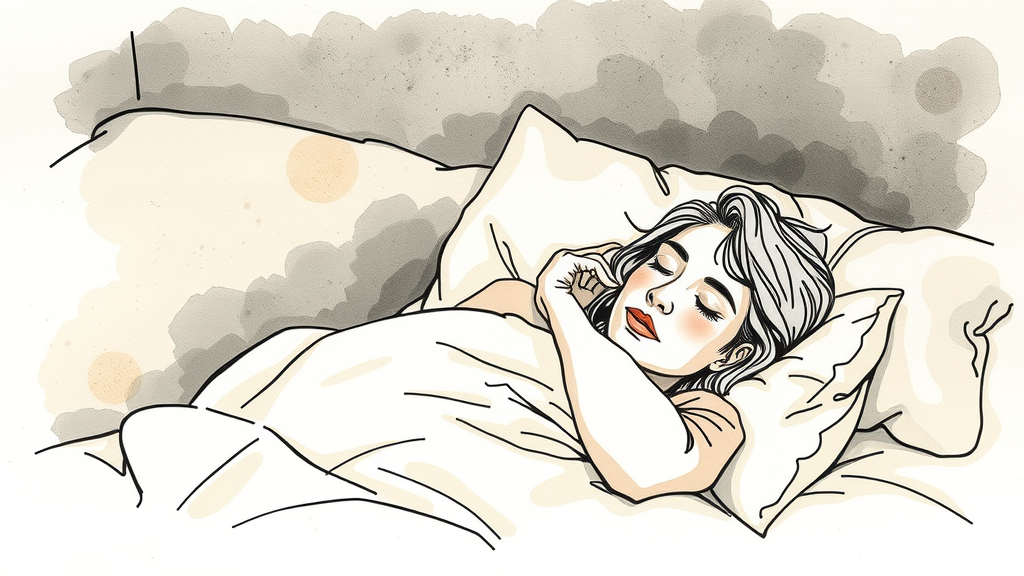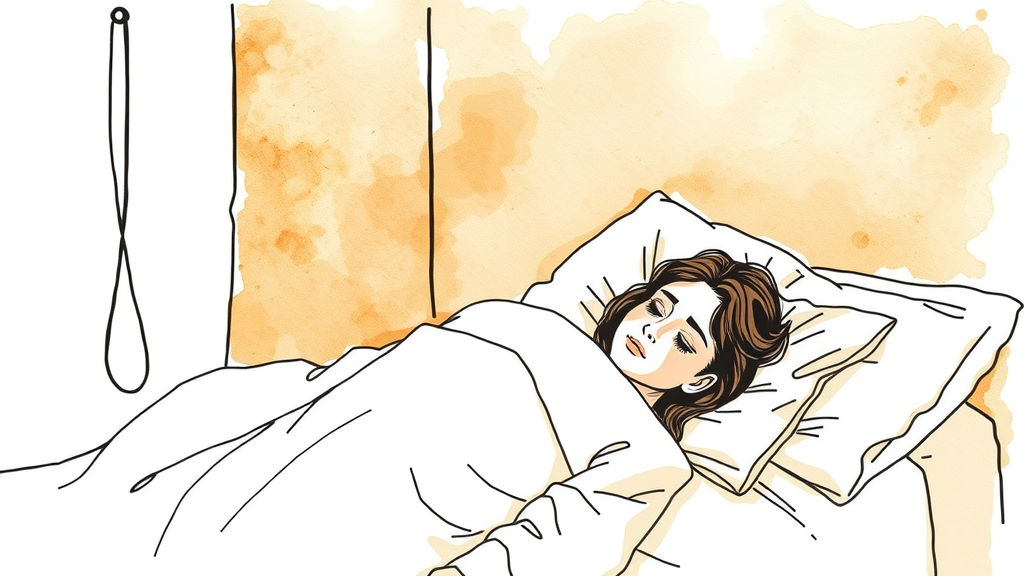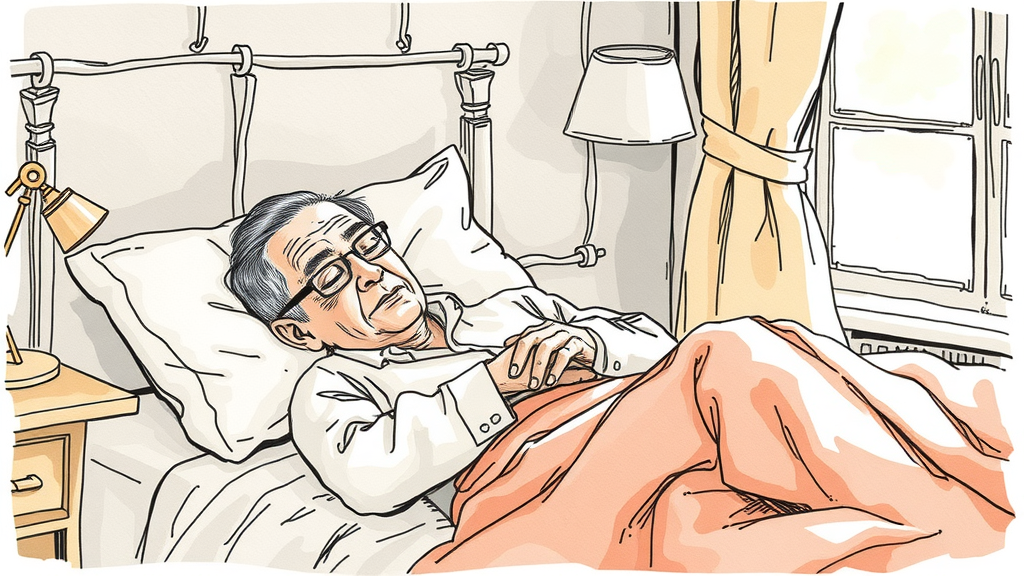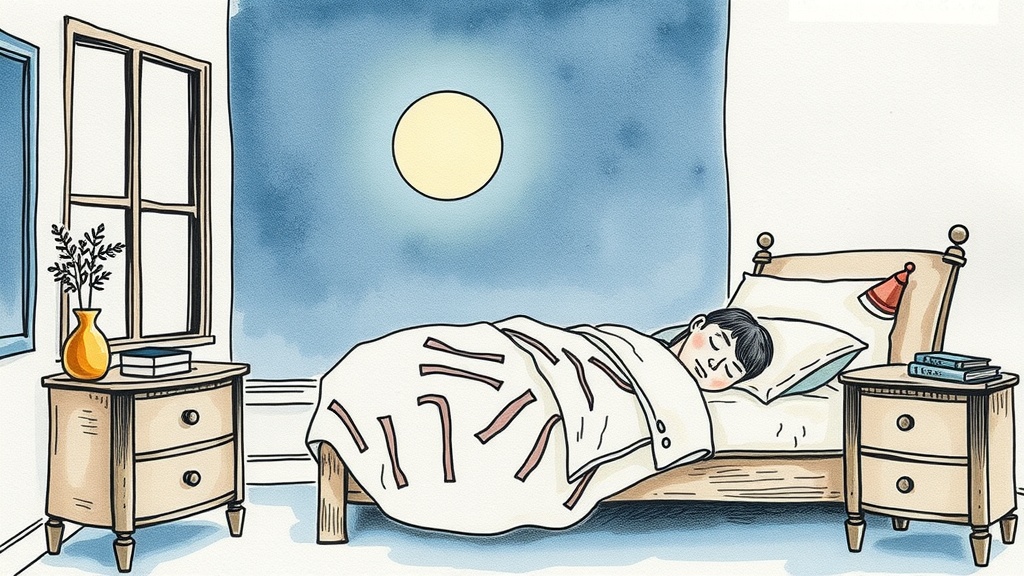· Don Schmidt · Guides · 9 min read
The Guide to CBT-I Sleep Therapy for Getting Off Sleeping Pills
Discover how CBT-I sleep therapy offers a safe, effective, and drug-free path to better sleep, helping you stop relying on sleeping pills.
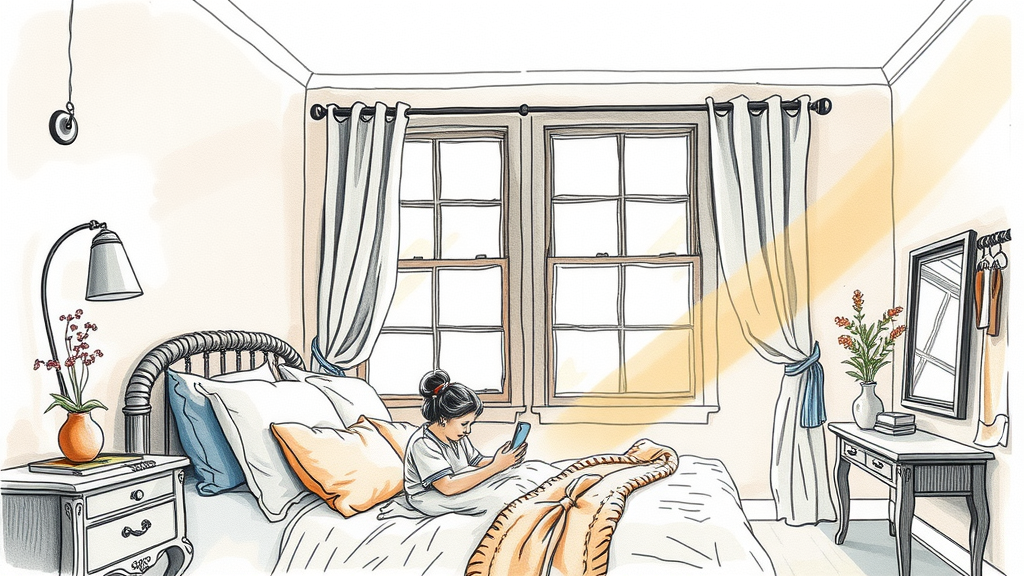
The Quest for Rest: Why Sleeping Pills Aren’t the Long-Term Answer
For many, the promise of a good night’s sleep often comes in the form of a pill. When tossing and turning becomes a nightly ritual, and exhaustion bleeds into every waking hour, sleeping pills can seem like a convenient and immediate solution. They offer a quick fix, silencing the racing thoughts and physical discomfort that accompany insomnia. However, while they might provide temporary relief, relying on sleeping pills often comes with a hidden cost: dependence, side effects, and the failure to address the root causes of sleep problems.
The widespread use of sleep medications highlights a critical need for effective sleep solutions. Yet, these pills often mask the underlying issues, creating a cycle where dependence grows, and the body’s natural sleep mechanisms are sidelined. Side effects can range from daytime grogginess and impaired cognitive function to more serious concerns like memory problems, dizziness, and even an increased risk of falls, especially in older adults. Furthermore, stopping these medications can lead to rebound insomnia, making it even harder to sleep without them. This is where a truly transformative approach like Cognitive Behavioral Therapy for Insomnia (CBT-I) comes in, offering a sustainable, drug free sleep treatment that empowers you to reclaim your sleep naturally.
What is CBT-I? Your Path to Lasting Sleep
CBT-I is widely recognized as the most effective and durable sleep therapy for chronic insomnia. Unlike sleeping pills, which offer a temporary chemical intervention, CBT-I addresses the thoughts, behaviors, and physiological arousal that contribute to and perpetuate sleep difficulties. It’s a structured program, typically delivered over several sessions, that teaches you the skills to improve your sleep long-term.
At its core, CBT-I helps you identify and change the unhelpful beliefs and habits that interfere with your sleep. It’s not just about simple “sleep hygiene” tips; it delves much deeper into the intricate relationship between your mind, body, and sleep patterns. By understanding how your behaviors and thoughts impact your ability to fall and stay asleep, CBT-I empowers you to make fundamental shifts that promote natural, restorative sleep. This comprehensive approach is what makes CBT-I an ideal drug free sleep treatment for those looking to get off sleeping pills and achieve lasting rest.
The CBT-I Approach to Tapering Off Sleeping Pills
Transitioning off sleeping pills can be a challenging journey, often fraught with anxiety about sleepless nights. This is precisely where CBT-I sleep therapy proves invaluable. It provides a structured, supportive framework that not only helps manage the physical and psychological aspects of medication withdrawal but also equips you with robust sleep skills to ensure sustainable sleep without pharmacological aid. It’s crucial to undertake this process under the guidance of a healthcare professional who can advise on the appropriate tapering schedule for your specific medication.
The process typically involves:
- Comprehensive Assessment: Understanding your unique sleep history, medication use, and underlying contributing factors to insomnia.
- Building Foundational Sleep Habits: Establishing a consistent sleep schedule and healthy sleep hygiene practices, which form the bedrock of good sleep.
- Gradual Medication Reduction: Working with your doctor, you’ll gradually decrease your pill dosage while simultaneously implementing CBT-I strategies. This slow, controlled taper minimizes withdrawal symptoms and rebound insomnia, making the transition smoother.
- Coping with Challenges: CBT-I provides tools to manage the anxiety, cravings, or temporary sleep disruptions that might arise during the tapering process. It teaches resilience and effective coping mechanisms, transforming potential setbacks into learning opportunities.
By building your capacity for natural sleep before or during the tapering process, CBT-I ensures that you have a powerful toolkit to fall back on, making the journey off pills significantly less daunting and more successful.
Core Components of Effective CBT-I Sleep Therapy
CBT-I is not a one-size-fits-all solution but a collection of evidence-based techniques tailored to individual needs. Here are the key components that make CBT-I such a powerful sleep therapy:
Stimulus Control Therapy
This technique aims to strengthen the association between your bed and sleep, and weaken the association between your bed and wakefulness. The core idea is simple: if you’re not sleeping, get out of bed. Key rules include:
- Go to bed only when sleepy.
- Use your bed only for sleep and intimacy (no reading, watching TV, or worrying).
- If you can’t fall asleep within 20 minutes, get out of bed and go to another room. Return only when you feel sleepy again. Repeat as needed.
- Maintain a consistent wake-up time, even on weekends.
Sleep Restriction Therapy
Despite its name, this isn’t about depriving yourself of sleep but about improving sleep efficiency. It involves temporarily limiting the amount of time you spend in bed to the actual amount of time you spend sleeping. This creates a mild sleep deprivation, which helps you fall asleep faster and stay asleep more consistently. As your sleep improves, the time spent in bed is gradually increased. This seemingly counterintuitive approach is highly effective at consolidating fragmented sleep.
Cognitive Restructuring
Insomnia is often fueled by unhelpful thoughts and beliefs about sleep (“I’ll never sleep,” “I need 8 hours or I’ll crash,” “If I wake up, my night is ruined”). Cognitive restructuring helps you identify, challenge, and reframe these negative thoughts into more realistic and helpful ones. This component is crucial for reducing performance anxiety around sleep and shifting your mindset from dread to confidence. If you’re struggling with how sleep impacts your mental state, exploring CBT-I strategies for managing anxiety-induced insomnia can provide valuable insights into addressing sleep-related worries.
Relaxation Techniques
Learning to relax your mind and body is vital for preparing for sleep. CBT-I often incorporates techniques like:
- Progressive Muscle Relaxation (PMR): Systematically tensing and relaxing different muscle groups to become aware of and release physical tension.
- Diaphragmatic Breathing: Deep, slow belly breathing that activates the parasympathetic nervous system, promoting relaxation.
- Mindfulness Meditation: Focusing on the present moment, observing thoughts and sensations without judgment, which can quiet a busy mind before bed.

Sleep Hygiene Education
While not a standalone treatment for chronic insomnia, good sleep hygiene complements all other CBT-I components. This involves practical advice on creating an optimal sleep environment and adopting daily habits that support healthy sleep. This includes maintaining a cool, dark, and quiet bedroom, avoiding caffeine and heavy meals before bed, getting regular exercise (but not too close to bedtime), and limiting screen time in the evenings.
Beyond the Basics: Tailoring CBT-I for Your Needs
One of the strengths of CBT-I sleep therapy is its adaptability. While the core principles remain consistent, a skilled therapist can tailor the approach to address specific co-occurring conditions or life circumstances that might impact your sleep. For instance, the strategies might be adjusted for individuals facing unique sleep challenges.
For older adults, where sleep patterns naturally change and chronic conditions are more prevalent, CBT-I sleep therapy tailored for seniors can address specific concerns like frequent nighttime awakenings or medication interactions. Similarly, individuals with co-morbidities like chronic pain often experience exacerbated insomnia. Understanding how CBT-I can help individuals with chronic pain can be a game-changer for those dealing with persistent discomfort that disrupts sleep.
Moreover, the demands of modern life can significantly impact sleep. For those working non-traditional hours, exploring specific CBT-I strategies for shift workers offers practical guidance on managing circadian rhythm disruptions. New parents, too, face immense sleep deprivation, and there are specific approaches within CBT-I for new moms navigating sleep challenges that can help them reclaim precious rest. This adaptability reinforces CBT-I as a truly holistic and effective drug free sleep treatment for a diverse range of individuals.
Finding the Right Support: Where to Begin Your Drug-Free Sleep Journey
Embarking on a drug free sleep treatment path requires commitment, but you don’t have to do it alone. Finding a qualified CBT-I sleep therapy provider is a crucial first step. Look for licensed psychologists, sleep specialists, or therapists who have specific training and certification in CBT-I. Many reputable sleep clinics and mental health centers offer these programs.
Online CBT-I programs and apps have also emerged as accessible and effective alternatives, often providing structured modules and interactive tools to guide you through the process at your own pace. While these can be highly beneficial, especially for milder cases, individuals seeking to taper off sleeping pills may benefit more from personalized guidance from a therapist who can monitor progress and adjust strategies as needed.

Remember, the goal of CBT-I is not just to get you off sleeping pills but to equip you with the lifelong skills to manage your sleep independently and effectively. It’s an investment in your long-term health and well-being.
Frequently Asked Questions (FAQ)
Q1: How long does CBT-I take to work?
A1: While individual results vary, most people experience significant improvement in their sleep within 4 to 8 sessions, typically spread over 6 to 10 weeks. The effects are often noticeable even after the first few weeks as you begin to implement the techniques.
Q2: Is CBT-I covered by insurance?
A2: Many health insurance plans cover CBT-I, especially when delivered by a licensed therapist or psychologist. It’s best to check with your insurance provider directly regarding your specific plan’s coverage for psychological services or sleep therapy.
Q3: Can I do CBT-I on my own using books or apps?
A3: While self-help books and apps can be a good starting point for learning about CBT-I principles, working with a trained CBT-I therapist is generally recommended, especially if you are trying to get off sleeping pills. A therapist can provide personalized guidance, adjust strategies, and offer support through challenges.
Q4: What if I have a really bad night of sleep during CBT-I?
A4: It’s normal to have occasional bad nights, especially during the initial stages or when tapering medication. CBT-I teaches you to view these as temporary setbacks, not failures. The key is to stick to your consistent wake-up time and continue applying the techniques, rather than reverting to old habits or increasing medication.
Q5: Is CBT-I suitable for everyone?
A5: CBT-I is suitable for the vast majority of individuals with chronic insomnia, including those who wish to reduce or eliminate sleeping pill use. It is safe and has very few contraindications. However, it may not be suitable for individuals with certain severe mental health conditions (e.g., untreated bipolar disorder, severe psychosis) or active substance dependence without concurrent treatment for those conditions. Always consult a healthcare professional.
Embrace a Future of Natural, Restorative Sleep
Deciding to transition off sleeping pills and embrace a drug free sleep treatment is a powerful step towards regaining control over your health. CBT-I sleep therapy offers a robust, evidence-based pathway to achieve this, teaching you practical skills and changing your relationship with sleep. It’s about empowering you to trust your body’s natural ability to sleep, fostering a sustainable solution that leads to lasting, restorative rest. Take the leap, invest in yourself, and discover the profound difference that a night of truly natural sleep can make.
Assess Your Sleep Quality Today
Take our My Sleep Health Score assessment to get personalized insights about your sleep patterns and discover how CBT-I can help you achieve better sleep.

Don Schmidt
15+ years of experience in sleep therapy and Cognitive Behavioral Therapy for Insomnia (CBT-I). Passionate about connecting individuals struggling with sleep disorders to evidence-based, non-medical treatment solutions. Author of hundreds of articles and comprehensive guides on sleep health, CBT-I techniques, and overcoming insomnia. When not helping clients achieve better sleep, you can find me hiking with my family and dogs or enjoying a good book.
Ready to connect with a provider?
Allow us to connect you with a provider who can help.
